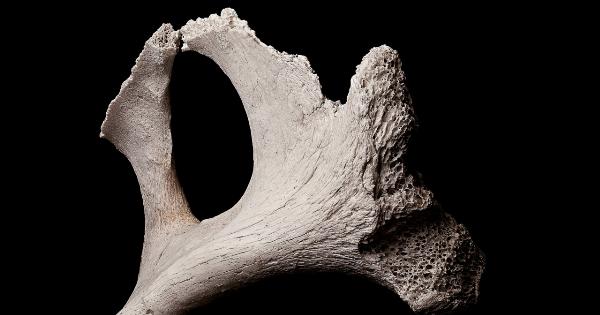Memory is a fascinating and intricate aspect of human cognition. It shapes our identity, influences our emotions, and plays a crucial role in our daily lives.
However, when it comes to motherhood, memory takes on an even more complex and profound significance. This article aims to explore the intriguing relationship between memory and motherhood, examining how the experience of being a mother influences memory formation and recall.
The Formation of Maternal Memories
One of the most remarkable aspects of motherhood is the formation of maternal memories. From the moment a woman becomes a mother, her brain undergoes changes that prepare her for the demands of caring for her child.
These changes include alterations in certain brain regions involved in memory processing, such as the hippocampus.
The hippocampus, a vital structure in the brain, plays a central role in memory formation.
During pregnancy, the hippocampus undergoes structural changes, promoting the formation of new neural connections and facilitating the encoding of maternal memories. These memories often encompass a wide range of experiences, from the joyous moments of holding a newborn for the first time to the challenges of navigating the early stages of parenting.
The Crucial Role of Memory Recall
Memory recall is equally important in the context of motherhood. Mothers rely on their ability to recall past experiences and relevant information to care for their children effectively.
Whether it’s remembering the details of their child’s vaccination schedule or recalling the location of essential items like diapers or baby bottles, memory recall plays a vital role in everyday maternal tasks.
Interestingly, maternal experiences can have a significant impact on memory recall. Researchers have found that the emotional intensity of a memory can enhance its recall.
This phenomenon is particularly relevant to motherhood, as the strong emotions associated with nurturing and bonding with a child can enhance the formation and retrieval of maternal memories.
Memory and Emotions in Motherhood
Emotions and memory are closely intertwined, and this relationship is particularly pronounced in the context of motherhood.
The emotions experienced during pivotal maternal moments, such as childbirth or witnessing a child’s milestones, can create enduring memories that shape a mother’s perception of her role and her child’s development.
Moreover, the emotional context in which memories are formed can influence their robustness and longevity.
Positive emotions, such as feelings of love and joy, have been shown to enhance memory consolidation and retrieval, while negative emotions, such as anxiety or stress, can have the opposite effect. Understanding the intricate connection between memory and emotions in motherhood is vital for comprehending the complexities of the maternal experience.
Memory, Identity, and Motherhood
Memory not only shapes our experiences as mothers but also plays a crucial role in the construction of our maternal identity.
As mothers, our memories of past parenting experiences and our perceptions of ourselves as caregivers influence our sense of identity and the decisions we make in raising our children.
Moreover, the memories we hold about our own upbringing and the relationships we had with our own mothers can also influence our parenting styles.
Positive memories may serve as guiding forces, inspiring us to emulate the loving and nurturing aspects of our own upbringing, while negative memories may compel us to actively avoid repeating perceived mistakes or shortcomings.
Memory and Parenting Challenges
The challenges of parenting can put memory to the test. Sleep deprivation, a common aspect of early motherhood, can have a detrimental effect on memory formation and recall.
Research has shown that sleep deprivation impairs memory consolidation and leads to difficulties in attention and retrieval processes. These cognitive deficits can make it even more challenging for mothers to remember important tasks or details, exacerbating the stresses of parenting.
Memory and Child Development
Not only does memory play a significant role in the experience of being a mother, but it also influences a child’s development.
Maternal memories contribute to the construction of a child’s own memories and shape their early experiences and understanding of the world. A mother’s ability to recall and share memories with her child can foster emotional connection and enrich the child’s own memory development.
Furthermore, maternal memories can influence the choices and decisions parents make for their children.
Memories of successful strategies, lessons learned, or challenges overcome can guide parents in providing the best possible care and support for their child’s development.
The Complexity of Memory and Motherhood
The intricate relationship between memory and motherhood exemplifies the multifaceted nature of both concepts.
Memory formation and recall are inherently linked to the experience of being a mother, influencing emotions, identity, and the ability to navigate the challenges of parenting. Simultaneously, the memories created during the journey of motherhood contribute significantly to a child’s development and shape their own understanding of the world.
Understanding this complex interplay between memory and motherhood allows us to appreciate the profound impact that memory has on our lives as mothers and emphasizes the importance of fostering positive and meaningful maternal memories for ourselves and our children.





























